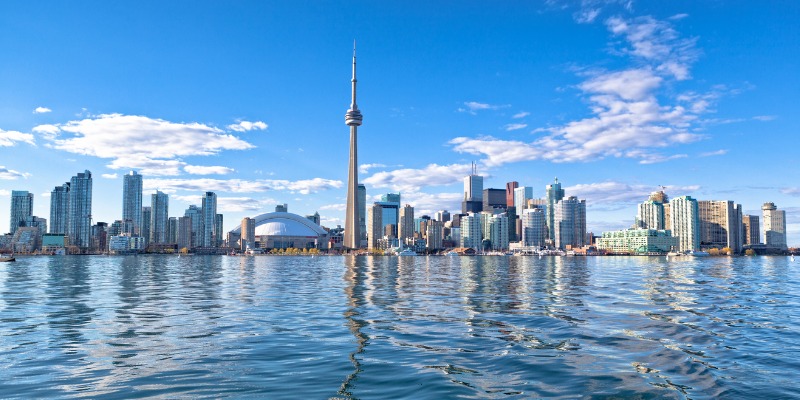
Metropolitan areas, like Toronto, get hotter in the summer because they are urban heat islands. An urban heat island is created in places where there are a large number of people, asphalt, cars, buses and trains. Where you have a lot of buildings, people and activity in an enclosed urban center, the heat doesn’t have a way to escape, and you experience an increase in temperatures.
How does the urban heat island impact Toronto?
Toronto as an urban heat island impacts the city itself by increasing the energy use of buildings, reducing air quality and impacting its potential for urban stability. For the citizens of Toronto, the urban heat effect can impact overall health and wellbeing, especially for those with respiratory conditions as well as young children, the elderly and others who are at greater risk during heat waves.[1]
Adding irrigation to your property can reduce the heat island effect
Installing and using irrigation is a great way to add much-needed moisture to the air, which in turn can lower temperatures. Installing irrigation systems on your property helps vegetation to grow and supports green spaces.
Paved areas give off more heat and keep the vicious cycle going. As cities like Toronto create more public and private green spaces, the number of paved areas decrease, which reduces the heat island cycle.
Other landscaping techniques that reduce the heat island effect
Besides adding more irrigation, living walls and green roofs are an excellent way to combat the heat island effect that Toronto experiences. These landscaping elements provide shade, help remove heat from the air and lower temperatures. In a city with limited vegetation, homeowners and businesses who incorporate these techniques into their landscape design can help reduce the heating effect across the city.[2]
Mitigating extra heat in cities
Across Toronto individuals and companies like the team at Lawrence Park Complete Garden Care are finding ways to battle the very serious issues related to the urban heat island effect.
As part of the team that achieved Toronto’s first Platinum LEED Canada Certification, our strategies to combat this urban heat effect were extremely important to the certification process. The extremely rigorous criteria for this LEED certification include water usage efficiency and the use of eco-friendly materials and resources.
Find a Landscaper That Can Help
A problem like heat islands will take the hard work and dedication of all of us to subdue, but perseverance is a mighty tool. Contact the landscape design experts at Lawrence Park Complete Garden Care for help incorporating strategies to combat this effect in your landscape design.
[1] The Urban Heat Island Effect in the City of Toronto. Research Gate. December 2015. Available online
[2] Urban Heat Island. National Geographic. Available online
